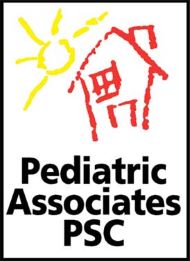From Insights to Impact:
The Power of Data in Patient Care and Practice Growth
By utilizing OP’s Demographic Analysis and Recall report functionality, Pediatric Associates, PSC of Kentucky is able to see more patients, generate more revenue, and offer better continuity of care to the patients in their pediatric practice.
Pediatricians have long recognized the importance of preventive care based on the American Academy of Pediatrics Periodicity Schedule, ensuring timely vaccinations and screenings for their patients at crucial developmental stages. However, practices often face challenges in recalling patients for these appointments, resulting in missed opportunities for essential care and additional revenue. OP’s comprehensive Demographic Analysis and Recall (DAR) report functionality enables pediatric practices to efficiently run recalls in a variety of ways to manage patient care and practice growth with ease.
The following client success story demonstrates the benefits of using the DAR. Discover how these powerful reports aid in identifying children due for well visits, recalling kids due or overdue for vaccines, managing two-dose immunizations and chronic care, and planning for the future growth of your pediatric practice.
Keeping Kids on Track with Recall Reports
Leveraging data-driven insights can be a game-changer for pediatric practices. Kateri Haskett, the CEO of Pediatric Associates, PSC of Kentucky, has long recognized and embraced this approach. Whether planning for future growth or looking for ways to provide complete, comprehensive care, culling data can be a minefield if you don’t have the right tools. She found the Demographic Analysis and Recall (DAR) reporting capabilities in OP to be the perfect solution.
“We use a DAR report to recall kids for their well visits, which is in line with the AAP pediatric well visit schedule,” says Kateri. “It’s our number one use.” Her approach involves running the report on a regular basis – typically four times per week – by defining age ranges for kids who are due for preventive care.
This approach significantly boosts the number of scheduled well visits and keeps kids on track for appropriate care. Kateri elaborates, “Today, I ran it for kids between the ages of 14 and 16. I set my parameters so it’s only looking for kids in that age range who need an appointment and aren’t already on our schedule. By aligning the appointments with the recommended well visit schedule, we ensure that children receive essential care at the right time.”
The end result? The day the messages went out, the number of newly scheduled appointments for 14-year-olds was 5% of the recalled patients. A month later, it had reached 35%. That’s a significant boost for teen patients, who oftentimes are hard to bring into the office.
According to Kateri, another benefit of sending recall messages is that some parents use the reminders as a kind of “early entry pass” for scheduling appointments. They appreciate the opportunity to secure convenient appointment slots and locations that align with their schedules. This positive response reinforces the effectiveness of the recall system.
Appointments with a Purpose
A proactive approach to well-child visits doesn’t stop at identification. Customizing appointment reminder messages has proven highly effective in motivating parents to schedule these crucial visits. By personalizing messages with specific information about the importance of vaccines or screenings, Pediatric Associates, PSC of Kentucky has seen an uptick in callbacks. This innovative approach educates parents about the benefits of preventive care and fosters trust with patients and their families.
“We used to just say, “Your child Susie is due for a checkup, please call to schedule.” Then, we modified it to say, “Your child Susie is due for her 11-year-old checkup, and at that checkup, she may be due for vaccines,” or, “she is due to get a lead screening,” or whatever lets the parent know why it’s important to schedule that visit. It’s had a tremendous impact on bringing more patients in for well care and overdue vaccines,” Kateri shares. It’s a win for the community and the practice.
Optimizing Vaccination Rates
Pediatric Associates, PSC of Kentucky recognizes the critical role that the DAR reports play in identifying kids who are due for immunizations. The practice proactively uses the data to recall patients for essential vaccinations that sometimes get overlooked in their adolescent population, such as HPV. “The HPV vaccine is really hard to get into kids. It’s a two-dose series that needs to be administered in a certain window of time, and some people feel like it’s an optional vaccine.” That’s where the DAR comes in handy. You just run a report on kids who have their first dose, then recall them prior to the second dose so they can stay on schedule. “We are very happy to have these kids protected,” says Kateri.
This approach ensures patients receive necessary vaccinations and adhere to complex vaccine schedules with limited efforts. Kateri emphasizes, “The DAR has significantly improved series completion and helped us identify patients who may have chosen not to vaccinate or dropped off our radar because they’re not coming in for checkups. Vaccination is a priority for us, and the DAR helps us identify kiddos who need vaccines. It also allows us to engage in conversations with parents more effectively.”
Managing Chronic Care Patients
Pediatric practices know that children with chronic health issues can sometimes fall through the cracks. Parents often juggle multiple responsibilities, occasionally forgetting the significance of regular pediatric visits. This is especially true when caring for children with chronic health concerns. Factors like work commitments, school schedules, and family routines can easily overshadow the need for consistent healthcare, leading to unintentional lapses in scheduling and follow-up visits.
For Pediatric Associates, PSC of Kentucky, DAR reports are critical in managing practice schedules. “We’ll pull a report, and we’ll say we want to see the kiddos in the age range less than one year who had a premature birth, or twins, or some other diagnoses,” Kateri says. “In June, we run that report so we know who to identify as a potential Synagis candidate during RSV season, so we know which patient needs to be front of mind.” Using the DAR for chronic care management doesn’t end there. The practice also uses reports to recall kids with an ADHD diagnosis to make sure they’re coming in for their med checks and assess if they are still on the right treatment plan. No combing through charts. No spreadsheets to track.
Strategic Insights for Practice Management + Growth
Beyond patient care, the practice utilizes the DAR as a strategic tool for practice management. Understanding the demand for care, particularly for conditions that require frequent checkups, informs the practice of its capacity to meet patient needs. “We make hiring decisions based on what our schedule looks like,” Kateri says. “If we need to see our ADHD patients every six months and my schedule is full, I want to know that.” This proactive approach helps the practice staff for patient demand, ensuring patients receive timely care and the practice effectively meet the needs of its community.
DAR reporting is also helpful in meeting quality measures such as HEDIS and payer-specific measures. “We have some quality initiatives around asthma, so we’ll pull reports based on those to see what our compliance rate is with those kiddos. It’s bringing them in on the right schedule, trying to avoid the emergency”, says Kateri. Improving care isn’t the only benefit; meeting P4P metrics aligns with quality goals, elevates reimbursement rates, enhances practice efficiency, and boosts overall patient satisfaction. It’s a win-win for everyone!
One Report, Many Uses
Pediatric Associates, PSC of Kentucky demonstrates the impact of data-driven strategies in healthcare. By using OP’s dynamic Demographic Analysis and Recall Reports, they ensure timely well visits, optimize vaccination rates, manage quality initiatives for chronic conditions, and make informed practice management decisions. Their commitment to patient care and practice efficiency sets a powerful example for pediatric practices navigating today’s healthcare landscape.


